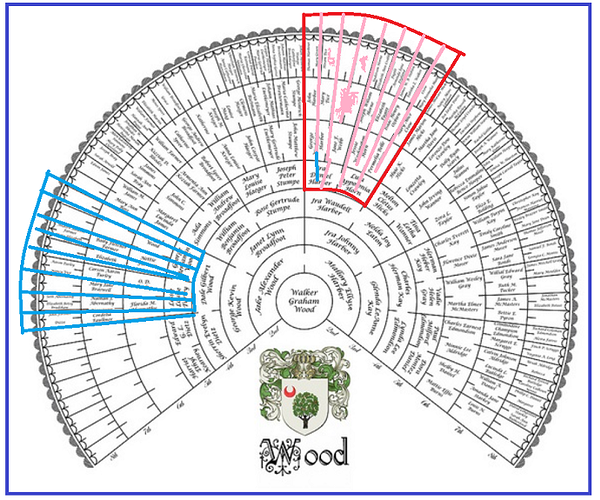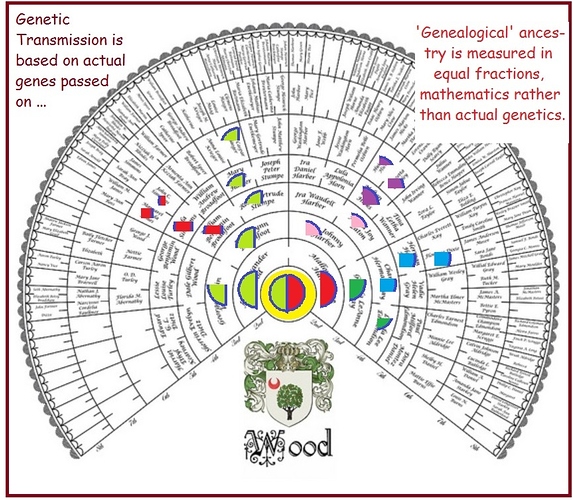So I had a very surprising experience recently that ended up revealing a great deal to me.
It turns out that there is a large body of mainstream scientific work that is not known to most Evolutionary Creationists. I did not know this at the time, and was very surprised by some of the responses I got to mentioning it. At the time, this was caught up in conversations about theology and Adam, where this is surely relevant. But the theological implications are beside the point if we are not working from the same understanding of the science.
I wanted to try again, this time without bringing (until I am forced) theology or Adam into the conversation. There should be no theological objections to explaining a mathematical theory and how it makes sense of the genetic data we see.
The key missing pieces, it seems, is working knowledge of the science of genealogical ancestry, which is very different than the science of genetic ancestry. Even if you do not understand the distinction yet, please go with me for a moment and just trust that there is. So do not treat genealogical and genetic as interchangeable. They are not. They are totally different concepts.
To get started, I am going to make several very surprising claims based on this body of work. I will not provide the citations on the outset, but I have them. This list of claims I can back up with (1) math, (2) published papers, and (3) intuitive explanations. I’m curious what you will find most surprising and want to get more information about.
- The vast majority of genealogical ancestors are NOT genetic ancestors.
- Universal genetic ancestors (of all living people) appear about 200,000 to 300,000 years ago, but Universal genealogical ancestors (of all living people) appear in 1/100th the time, about 3,000 to 2,500 years ago.
- Genealogies (i.e. pedigrees) are unobservable in genetic data farther than about 1,000 years in the past.
- We have billions and billions of common genealogical ancestors, and this number only grows with time.
- We have only one Y-Chromosome Adam ancestor (a type of genetic ancestor), and the identify of this individual changes over time.
- If we go back far enough (about 5,000 to 15,000 years), every person alive before then is usually either (1) a genealogical ancestor of every human alive today or (2) a genealogical ancestor of not even one human alive today.
- It is impossible for science (genetic or archeological) to demonstrate a population on earth was entirely isolated, with no interbreeding, for a long period of time.
And a few additional assertion that do dip into theology. If you disagree, please cite some verses and explain how (if all the science I have given above is correct) that your objection is valid.
- There is no genetic claims in Scripture if #1 above is true, but there may possibly be genealogical claims.
- There is not scientific way to define the “mankind” of Scripture. Are Neanderthals included? Are Denisovans? Are ancient humans (200,000 years ago)? There is no guidance in Scripture or science. We cannot know.
Okay, with that, I’m curious your thoughts.

